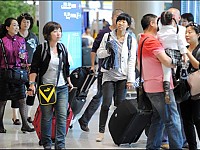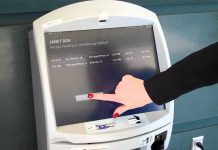This post may contain affiliate links. We may earn money or products from the highlighted keywords or companies or banners mentioned in this post.

In 2014, 2.2 million Chinese tourists visited Japan which is an increase of 82%. This has made China the third-highest source of travelers for Japan. The rise in Chinese tourists is attributed to a depreciating yen, straightforward visa application procedures, and Japan’s efforts to improve tourist services.
According to Jiang Yiyi, the vice director of the Institute of International Tourism Development, which is part of the China Tourism Academy, in 2013, Japanese Yen went down by 20% against the Chinese Renminbi. It dropped further by between 10 and 12% in 2014. This allows customers to enjoy discounts ranging from 20 to 30% when they purchase Japanese items. Jiang adds that Chinese tourists now have greater spending power compared to previous years.
Chinese nationals now get a five-year multiple-entry visa to Japan. This is after the Japanese government extended its multi-entry visa period for Chinese visitors. Chinese nationals were only allowed to get a three-year visa to Japan. Once a Chinese national fulfills certain economic conditions, they can apply for a multi-entry visa that allows them to visit the country for three to five years.
Ijichi, a director at the Beijing Office of Japan’s National Tourism Organization says that the government will continue to relax its visa requirements.
Another measure that has helped to increase the number of Chinese tourists is Japan’s decision to include more goods in its duty free range. Food, cosmetics, bags, and electronic devices are now part of duty free products. This allows consumers to get at least 8% in savings in sales tax. Consumers also complete all duty free processes in the stores when they make a purchase.
Foreign tourists get the best services in the country. Dining establishments provide both knives and forks, and chopsticks. Introductions and signs are written in both simplified and traditional Chinese. Japanese shop assistants also often speak Chinese, making it easy for consumers to communicate when they visit local shopping malls.











